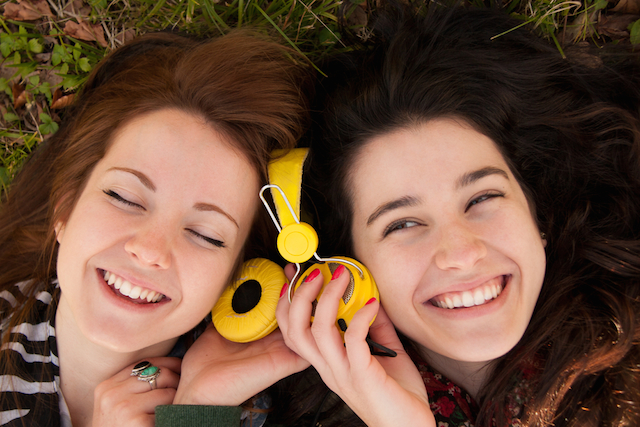
“Joy comes not through possession or ownership but through a wise and loving heart.” ~Buddha
We all have these random little personal philosophies or rules that we live by. Oftentimes, these rules are hidden beneath the surface, not in a form that we are aware of or is easily expressible.
But I do have one particular “random little personal philosophy” that I live by (and am aware of!) and would like to explore further. It is my philosophy of tipping.
This philosophy of tipping was thought up specifically with reference to tipping, say, in restaurants, but can easily be generalized. Here is the original formulation:
I cannot afford to eat at this restaurant if I cannot also afford to give a large tip.
Now, this doesn’t mean I need to give a huge tip each time—I just need to be willing to in advance.
So, if I’m going to a restaurant where I know a decent meal will cost $20, I will commit before going in that I am willing to spend closer to $30. Generally, the tip will be fairly typical—about 20% for a good job—but the actual magnitude isn’t the point.
What matters in this case is that I consider a large tip to actually be a part of the cost of the meal already. Of course, the tip is part of the cost of a meal, but I don’t think most people look at it that way.
Rather, most people think of the menu price as the cost, and the tip is this annoying extra that you have to pay at the end. I’ve had friends who go out to eat with me, order whatever they want off the menu, and then find that they don’t have enough cash to pay for a tip at all.
In my case, if I didn’t have the money available to give a sizable tip, I wouldn’t even make it inside the restaurant. After all, that would mean I couldn’t afford it.
This may sound like a very simple life philosophy, and one that hardly seems worth reading about (let alone writing about). But the implications, when the principle is taken to its logical conclusion, are far more significant. Let’s generalize it now:
If I am not willing to share something, I shouldn’t get it in the first place.
Please, do not take this to be a legitimate moral or economic principle—it is pure and simply a life philosophy, or a heuristic for making choices in my own life. Your property is your own and you are certainly not an immoral person if you don’t share, but you may very well be happier if you do.
A major benefit of all this is its fiscal sensibility. While you may end up spending more on tips and getting extras of certain things in order to share, you will ultimately end up being more careful with your finances and use your money less.
This sort of mindset makes you far more likely to have a potluck with friends than to go out to eat, or to save money rather than spend it.
But once you’ve really internalized the idea, you’ll also find yourself experiencing a significant happiness boost. Why? Because giving feels good. Being kind feels good. And sharing positive experiences with others feels good.
Ultimately, it involves spending more time and money on others and less on yourself. You certainly shouldn’t be neglecting your own needs and desires. But when you do nice things for yourself, make sure you have a little extra so somebody else can enjoy it with you.
Okay, great. So how does this work in practice?
As a whiskey lover, I consider it a nice treat to drink a delicious, high quality whiskey. Jameson may be perfectly fine most of the time, but I like to have Johnny Walker Black Label around for special occasions.
Unfortunately, JW Black is pretty expensive—it would be very easy for me to hoard it and not let other people drink any. Instead, I drink it primarily when I have close friends around. It’s a vastly better experience when shared!
The nature of the material possessions that I tend to purchase is similar; I try to buy things that have more sharing potential. Most of my possessions at this point are books and DVDs, both of which I am routinely lending out to others or enjoying with them.
Predictably, this lends itself to a more “simple” lifestyle. I buy a lot less than I could, but the things I do own have a high return on investment with regards to my happiness.
A big part of this philosophy, though, is to share with strangers. If you are going out for a night of drinks in the city, throw an extra few singles in your pocket to give to the homeless people in the area. If you can’t afford $5 to give to five homeless people, then you can’t afford the $50-100 it would take to go out.
It’s not just about money, either. The same principle can apply to the way you use your time.
If you can afford to play video games all day Saturday, then you can spend an hour of that time volunteering at a soup kitchen or helping a friend move. In fact, studies have shown that spending time on others makes you feel as though you have more time available…cool!
As with most areas in life, it is hard to apply a philosophy like this perfectly, but that’s not the point. I’m far from perfect with this, but even so, I’ve derived great benefits from focusing on this principle, and you can too.
Friends sharing image via Shutterstock
About Michael Davidson
Michael Davidson has written for over a year about finding happiness and health. The keys to his heart are dark chocolate and an encyclopedic knowledge of Simpsons quotes. Get his free 8 day e-course on how to create a healthy lifestyle that makes you happy and follow him on Twitter.













 Though I run this site, it is not mine. It's ours. It's not about me. It's about us. Your stories and your wisdom are just as meaningful as mine.
Though I run this site, it is not mine. It's ours. It's not about me. It's about us. Your stories and your wisdom are just as meaningful as mine.
Great article/philosophy. I agree, things are best when shared. Some of my fondest memories of my childhood are the times when we went out to restaurants, oftentimes bringing a friend along, and my parents always emphasized that we could all order whatever we wanted. We didn’t go out to eat much, but when we did it was with the understanding that we could do so with generosity to our family and any guests, plus a generous tip to our server. It really meant a lot to me. When I brought it up with my father as an adult, he said that his parents did the same thing. They had even less “extra” money, but always made sure they were generous in restaurants, and would only go if they could afford to be there and make sure everyone ate what they wanted to. It definitely makes for a special time, and great memories! 🙂
You know, Gina, now that you are saying this, it reminds me of a comparable experience I had when I was younger. My friend’s parents took me on a vacation with them and basically treated me to anything I wanted. Man, was that generous of them! And we were staying at the Atlantis in the Bahamas, so they must have spent a good amount on me.
I suppose that story is from the receiving end of the generosity, but I can certainly say it was appreciated 🙂
Thanks for this blog and the last message to go out and make 2015, which I consider to be a hefty number, the best ever. I say GOODBYE to 2014, what a confusing year for me. Yea, Tiny Buddha and for good size tipping tips !
Thanks for this blog and the last message to go out and make 2015, which I consider to be a hefty number, the best ever. I say GOODBYE to 2014, what a confusing year for me. Yea, Tiny Buddha and for good size tipping tips !
Hi Michael, I got a huge amount of this article. I can see how this could be applied to anything in life, especially in relation to time. So thank you!
You’re quite welcome! I’m glad you enjoyed it 🙂
how i got my husband back and got pregnant after 5 years!!!my husband has been patient with me and has been encouraging me that it will be best if we had hopes that we will have a child one day.last year,we had a little fight acnd he demanded for a divorce and i was so down because without him,i am nothing.he left me and the next day i met him with another woman in a shopping mall.i even tried talking to him but he pretended he didnt know me.i told my sister about it and she introduced me to the Famous Dr Malaa,who helps in so many ways.i contacted him and he did his thing,before i knew it,the next day Moric called me and apologized that he was sorry for everything and that i should take him back and that he will cancel the divorce,i had no choice than to accept him,and we have been living happily until i felt sick and went for check up and the doctor confirmed me pregnant.i am so happy and all thanks to Dr Malaa for all his help.contact him now for any kind of problem and he will surely try his best to make you happy. His email is (bestspellhome@gmail.com) or also call his mobile +2348159645271.thanks once again Dr Malaa for everything 🙂
Hi Michael,
Your philosophy is interesting, and it is nice that you extend it to Strangers too.
However, I’ve a few questions. Do you extend it to the Door-openers and car pool helpers? And, are you sure that your amount is shared with cooks and other workers involved behind the scene? Do you extend tipping to all such as, car mechanics, domestic help, Receptionists, and so on?
One problem with generous tipping is that Attendants tend to focus on these people while others’ needs are given second priority to ill treatment. The tip amounts are subject to comparison too.Nowadays, tips are taken as a birth right by some! I hear some employers even pay less for jobs where tips are received by default.
So, I feel that Tipping has to be sensible and shouldn’t be limited to the Restaurants.